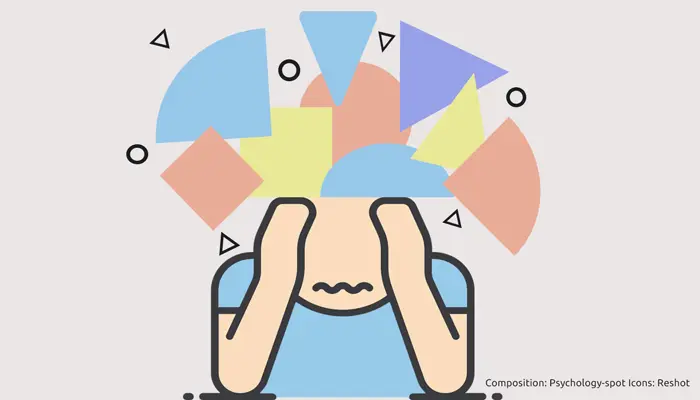
Deadlines, a job that is too demanding, excessive responsibilities, financial difficulties, social commitments… Modern life brings with it many concerns that become a source of daily stress.
In fact, stress is part of our life. It is a normal reaction and it can even be positive since it generates a level of activation and alertness that helps us to do our best to meet deadlines or react quickly to an emergency.
However, chronic stress has negative effects on our physical and mental health, leading to muscle tension and pain. For this reason, in addition to psychological techniques, it may be convenient to resort to physiotherapy for stress as part of a holistic program that harmoniously integrates the care of the mind and body.
Invisible tension, the impact of stress on muscles
When we’re stressed, our bodies respond by releasing cortisol, a hormone that prepares us to fight or flee. That response triggers a cascade of changes at the physiological level, such as increased heart rate, blood pressure, and respiratory rate, as well as tensing the muscles.
Muscle tension is a reflex reaction to stress as it prepares us to face perceived danger. When stress is sustained, not only is our mind in a state of permanent vigilance, but our muscles are also tense, ready for action.
Over time, stress can lead to muscle tension and chronic pain, especially in the neck, shoulders, and back. This tension can also lead to tension headaches and migraines. Musculoskeletal pain in the lower back and upper extremities has also been linked to stress, especially work stress.
In the long term, the pain caused by this muscle tension leads people to limit their level of physical activity, which ends up causing muscle atrophy, which causes other more serious musculoskeletal conditions.
Researchers from the Department of Physiology at SRM Medical College have verified that the hormones released during periods of stress have a negative metabolic effect on muscles. Not only do they cause oxidative damage, but they promote muscle protein catabolism, which means that stress can cause us to lose muscle strength prematurely, eventually leading to falls and fractures.
Physiotherapy for stress: how can it help us?
Stress can be fighted from different fronts. In addition to identifying its causes and learning psychological techniques that allow us to manage stress in a more adaptive way, if we begin to experience muscle tension or even pain, we can resort to physiotherapy for stress.
Physiotherapy can include everything from massages to exercise plans and movement circuits that have important physiological effects as they help reduce muscle tension, sending a clear message to the brain: you can relax. We must not forget that our body is a psychosomatic system, so just as stress causes muscle tension, muscle relaxation generates the opposite response: peace of mind.
1. Counter stress hormones
Massages can decrease cortisol levels by approximately 31% while increasing the production of hormones such as serotonin and dopamine, which generate a sense of well-being, by 28%, according to a study conducted at the University of Miami.
As a result, massages help us find our emotional balance and relax, relieving muscle tension. In fact, they are also an effective treatment to combat generalized anxiety. Researchers at Emory University found that two weekly massage sessions for 6 weeks can significantly reduce anxiety symptoms.
2. Improve sleep quality
Stress goes hand in hand with insomnia, generating a vicious circle that feeds on itself. Physiotherapy can help us get out of this spiral so that we can rest better, which in turn will relieve tension, reduce fatigue and irritability, contributing to generating a virtuous circle that feeds the feeling of well-being.
A meta-analysis conducted at the Department of Human Neurosciences of the Sapienza University of Rome revealed that moderate-intensity aerobic training, and physical activity in general, improves sleep-related biomarkers such as melatonin and serotonin. This change is more evident after 6 or 8 weeks, from which time the quality and quantity of sleep begins to improve.
3. Decrease sensitivity to stress
The prescription of exercise is common in physiotherapy treatments for stress. And it is not for less since physical activity is an excellent antidote against accumulated tension and anxiety. Movement fills us with vitality and helps us release pressure, thus helping to keep stress at bay, preventing it from reaching harmful levels.
A meta-analysis conducted at Yale University revealed that those who do some form of exercise in their spare time are between 62 and 78% less likely to experience high or moderate stress. Interestingly, physical activity not only relieves the symptoms of stress, but also gives us greater resistance to adversity, so it will help us better deal with problems that may occur in the future.
We’ve all felt stressed at some point in our lives, but how we manage that stress can have a significant impact on our overall health and well-being. We can sit idly by letting stress build up or we can look for solutions.
Physiotherapy and exercise can be an excellent alternative to manage tension and stress-related pain, as well as to improve our overall physical health. Physiotherapists will not only work on sore spots and “knots” in the muscles, but they can also teach us muscle relaxation exercises or even design a personalized training circuit that helps us release tension through movement. There are directories where you can easily find a physiotherapist in your area so that you can take a proactive attitude towards stress.
Sources:
Tramontano, M. et. Al. (2021) Physical Therapy Exercises for Sleep Disorders in a Rehabilitation Setting for Neurological Patients: A Systematic Review and Meta-Analysis. Brain Sci; 11(9): 1176.
Rapaport, M. H. et. Al. (2016) Acute Swedish Massage Monotherapy Successfully Remediates Symptoms of Generalized Anxiety Disorder: A Proof-of-Concept, Randomized Controlled Study. The Journal of Clinical Psychiatry; 77(7): e883-91.
Poornima, K. N. et. Al. (2014) Study of the Effect of Stress on Skeletal Muscle Function in Geriatrics. J Clin Diagn Res; 8(1): 8–9.
Stults-Kolehmainen, M. A. & Sinha, R. (2014) The Effects of Stress on Physical Activity and Exercise. Sports Med; 44(1): 81–121.
Field, T. et. Al. (2005) Cortisol decreases and serotonin and dopamine increase following massage therapy. Int J Neurosci; 115(10): 1397-1413.



